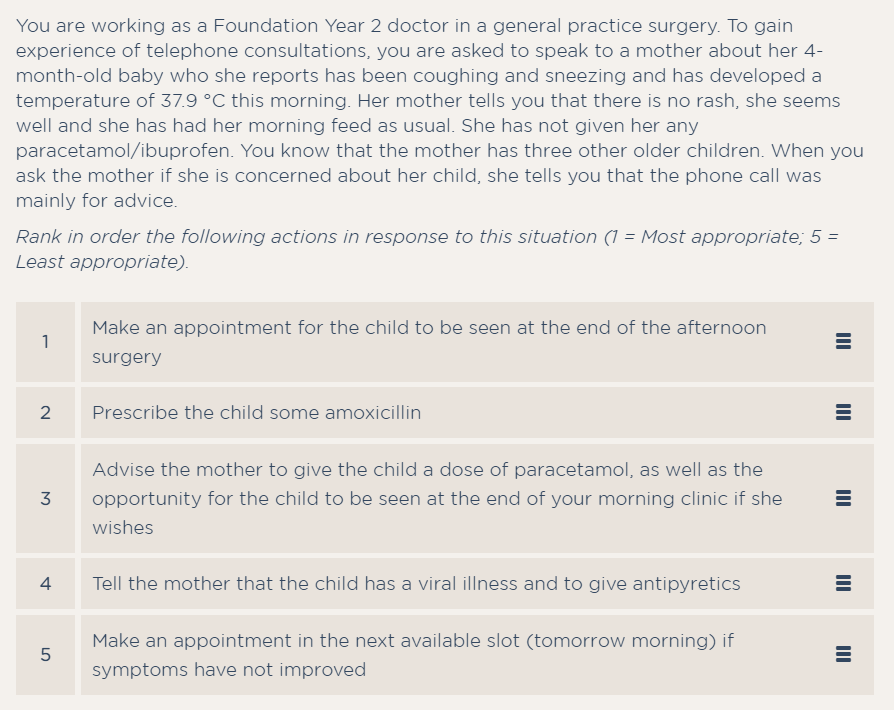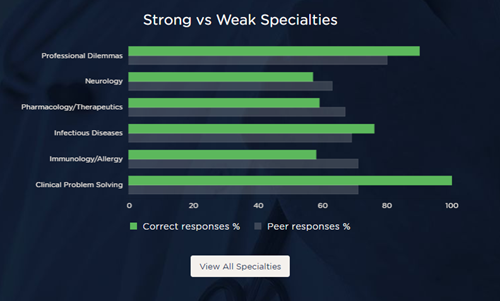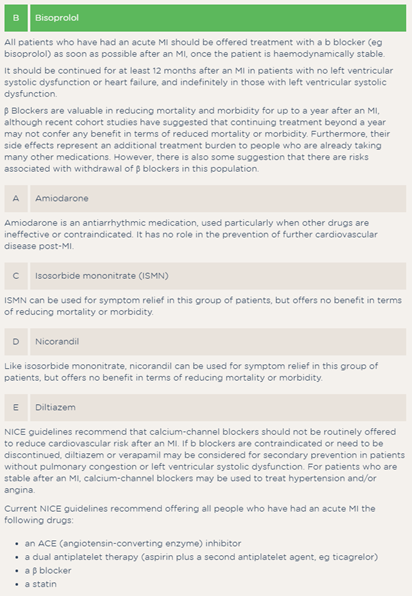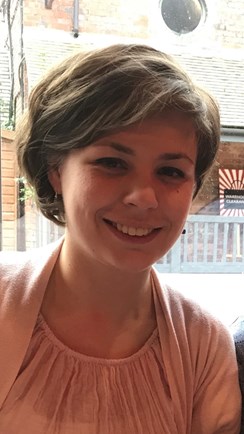Katie Smith, accepted as a GPST1 at Sherwood Forest, shares her exam advice and the revision strategy that enabled her to secure her top job preference.
Yes, I meant MSRA, not MRSA – although sometimes it can feel like a superbug...The MSRA (Multi-Specialty Recruitment Assessment) is part of the selection process for entering GP training, as well as several different postgraduate medical specialties. To become a member of the Royal College of General Practitioners (RCGP), and gain entry to the GMC GP Register so you can begin applying for jobs, you must first pass the RCGP exams including MSRA.
MSRA Exam
The MSRA is the Multi-Specialty Recruitment Assessment, a computer-based exam taken nationally in Pearson Vue centres. The exam is composed of two different parts: a Professional Dilemmas (PD) paper and a Clinical Problem Solving (CPS) paper, lasting 110 and 75 mins respectively. The PD paper comprises 58 items, around half of which are ranking items, and half multiple choice. The CPS paper includes 86 items in 12 clinical topic areas. Around half of the items are Extended Matching Questions (EMQs) and half Single Best Answer (SBAs). You can find the full MSRA exam format, including competency domains being assessed, on the GP Recruitment website.
Professional Dilemmas Paper
The PD paper is very similar to the SJT - there isn’t necessarily a perfect answer! The main things they are looking for are acting with integrity, coping under pressure, empathy, sensitivity, and recognising important concerns and responding appropriately.
In the PD paper you are asked to rank several different answers in terms of how appropriate they are. The top score for each ranking question is 20. Sometimes this can be difficult to achieve, but say you mix up two and rank three correctly – you will still get quite a lot of points for that! And, even if you put them all in the wrong order completely you still get eight marks – so don’t leave them blank!! If you try to be a supportive colleague, a good doctor and make sensible, safe decisions – you can’t go far wrong.
Pastest's MSRA Ranking Question
Clinical Problem Solving Paper
The Clinical Problem Solving Paper includes 12 different clinical topic areas (below). The domains all focus around one of the following: investigations, diagnosis, emergencies, prescribing or management. Particular specialties which are often dominant are Paediatrics and Obstetrics and Gynaecology.
Clinical Problem Solving Topics:
- Cardiovascular
- Dermatology/ENT/Eyes
- Endocrinology/Metabolic
- Gastroenterology/Nutrition
- Infectious diseases/Haematology/Immunology/Allergies/Genetics
- Musculoskeletal
- Paediatrics
- Pharmacology & Therapeutics
- Psychiatry/Neurology
- Renal/Urology
- Reproductive
- Respiratory
MSRA Scoring
I found the scoring scale for MSRA slightly confusing as there is no maximum score achievable. Instead, they used a system called ‘normalisation’ which takes into account the score of everyone who takes the exam and normalises them around a mean score of 250 with a standard deviation of 40. The scores are then placed into bands 1-4. Band 1 are the lowest scores and are unsuccessful in progressing further, and 4 includes the highest scorers.
Scoring highly in the MSRA exam can be hugely advantageous as candidates are more likely to get their top choice of training program.
Without expecting to, I was fortunate enough to score within the top 10% of the cohort for the Clinical Problem Solving paper and within the top 2% for the Professional Dilemmas paper!
Applying for MSRA
There are two rounds of recruitment a year, one to begin your job in February, the other to begin the job in August. Passing the MSRA is valid for one year so you could, in theory, apply for both rounds of that year without having to re-sit it.
Once you apply for GP you’ll receive a message asking you to create a Pearson Vue account and register. If you are deemed eligible in your application for GP you will be invited to sit the MSRA. There is no charge for the exam, but you should be prompt in booking a place as the ones next to you may fill up quickly and who wants to travel farther than they need to just before an exam?
The Pearson Vue centres are the places where many exams such as driving test theory are taken. You book a slot to take an exam, and the people in the room with you may be taking completely different exams.
MSRA Exam Day
When you get to the real exam try not to worry if a question seems ambiguous, vague, and doesn’t make sense, or appears badly written. It’s possible that it is one of the 11 pilot questions in the CPS or eight in the PD. These pilot questions are simply being tested to ascertain their quality, and do not count towards your score. I was able to stop myself from stressing about a particular question by remembering this fact and saying to myself – if it’s a bad question it’s probably a pilot and not going to count. This meant I was undeterred and able to concentrate fully on the next question. Considering you only have 45 seconds per question it’s important not to get too hung up about one particular question. If you don’t know how to narrow it down any further then pick one and move on. You can always flag it and try again at the end if you have time.
MSRA Revision
When I began to prepare for the exam I found it frustrating that there was no official mock paper. There are some free sample question examples on the GPNRO resource bank, however, they don’t include mock papers. There is also a worthwhile tutorial on how to navigate Pearson Vue computer-based examinations on their website.
During medical school I had used Pastest alongside other revision websites and found Pastest to be the most useful for my preparation. It was, therefore, my go-to website when I came to prepare for the MSRA exam – plus Pastest have mock exams for both papers. I found that the mock papers were useful to practice questions of the correct style and to highlight any areas of knowledge which may need refreshing.

MSRA Revision Strategy
I began my MSRA preparation early by trying to do some revision every day, but only in small amounts to start with, and then gradually increasing the amount of time spent revising. Of course, it’s not always achievable to revise every day when trying to juggle on-calls and busy A&E shifts. This is where the Pastest app came in really useful! I could revise a few questions here and there whilst on my lunch break or on my journey home. The app allows you to pre-download questions in advance so if you don’t have mobile data it doesn’t matter.
Professional Dilemmas
The best ways to prepare for the PD questions are to pay attention to what’s happening with all members of the multi-disciplinary team around you, and listen to their problems and their resolutions to them. Secondly, you should work through the questions available on Pastest which are the closest to the real exam questions that I’ve found. I was able to whizz through the PD paper, with approximately 20-30 minutes to spare, and still score in the top 2% because I’d worked through every question on Pastest and there was nothing in the real exam that was any different.
For the multiple best answer questions the most important thing is that the options you choose to take are intended to work TOGETHER. Don’t select one answer that contradicts another, or is very similar but not quite as good – because you just wouldn’t do that in real life.
Clinical Problem Solving
Clinical problem solving - not so easy to cram. I would say that the best preparation you have for this is seeing real-life patients, which you’ve been doing for a long time now! Then you can consolidate this knowledge by doing the practice questions on Pastest. Most of the questions are set in primary care, however, there are a few sets in secondary care creeping in now. Even if you haven’t had experience of that area - e.g. ‘on the ortho ward Mr X is suffering from x’ – the judgement is the important bit and not the context, so don’t get too hung up on it. You can’t ask for more information so just work with what you’re given and select the best option in that case.
MSRA Revision Tips
My biggest revision tip would be don’t just answer one of Pastest's MSRA questions and see whether it’s right or wrong then move on, make sure you read the answer explanation because this is probably the most beneficial bit! For example, you may guess the answer to a question about drugs simply because you hadn’t heard of the other four answers. Yes, it was lucky, but you should read about the other four because they’ll likely be what the question is about next time. 
Pastest's MSRA Answer Explanation
If you really don’t know an answer then try to narrow it down by ruling out options that are definitely incorrect. Remember, there is no negative marking so don’t hesitate to make an educated guess if you have to. Also, try not to pre-judge questions, make sure you read them thoroughly. Assuming the answer will be the same as a similar question when really the details are slightly different, is a sure fire way to get it wrong.
Pastest's MSRA question bank was my biggest revision aid, both the online version and the app, and I doubt I would have done so well without these tools. I was able to watch my score progress over time and see how I improved with practice by using the performance analytics. I ensured that when I was tired I stopped revising, ate, and slept well. My personal methods of revision also included preparing for the exam at work by seeing as many patients as I could, discussing or looking up anything that I was unsure about, having the relevant Oxford Handbook in my scrubs pocket at all times, and frequent use of the British National Formulary (BNF). The night before the exam I did no revision at all, I relaxed, watched a film, painted my nails and went to bed early. Personally, I think that staying up late, relying on caffeine, and stressing about the exam the night before is a very bad idea.
I’m pleased to say I secured my top preference job offer and will now be heading to my new career in August – and I couldn’t be more excited. Thank you for reading this and good luck!!

I’m Katie Smith, originally from Staffordshire and currently an F2 in Manchester. I have just been accepted as a GPST1 at Sherwood Forest. I enjoy the challenges of medicine but my heart is in general practice. I also have an interest in mental health and completed a diploma in this area during my foundation years.



